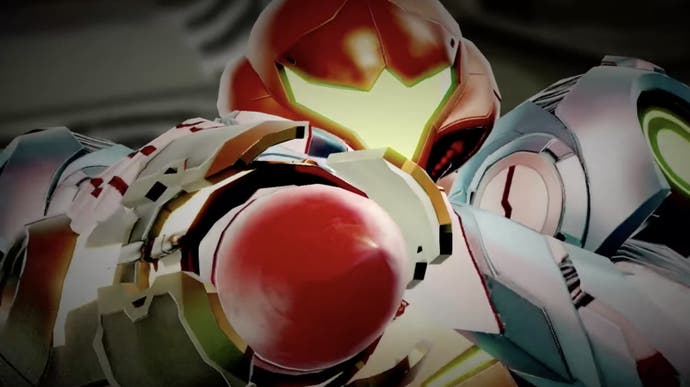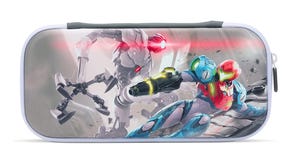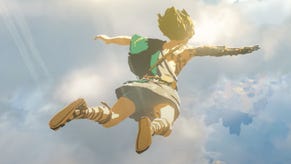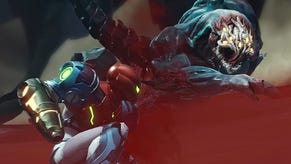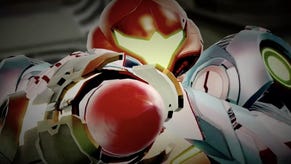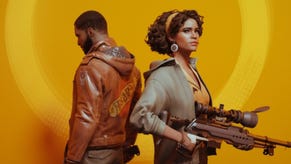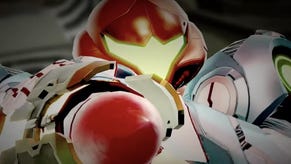2021 in review: Samus returns, or how double-A games provided some of the year's big showstoppers
Dread zone.
Hello! Over the next few days we're going to be going back over some of our favourite games and moments and themes and whatnot from this very strange year. We hope you enjoy looking back with us!
It has been, the story goes, a quiet sort of year for video games. After the fun and festivities of 2020, which against the backdrop of a pandemic somehow saw two new consoles being released, there's been a lethargy to 2021 - a Boxing Day fug as we're caught in the liminal buffer between the big launch year and 2022, where every big release has seemingly been delayed to.
Which is all true enough. There hasn't been a lightning rod of a release like Animal Crossing: New Horizons, no towering triple-A statements like The Last of Us Part 2 or showstoppers like Final Fantasy 7 Remake. Even the disappointments have been on a lesser scale; we've got the reliably unreliable Battlefield doing its best with 2042's botched launch, but it's never reached the same drama as Cyberpunk 2077's own belly-flop.
A low-key kind of year, then, which helps set up some more modest productions providing some of the biggest showstoppers of 2021. If you've love for more modest productions of a certain vintage, 2021's been packed with heartwarming returns: R-Type got an unlikely sequel that felt more like a celebration than the famously fatalistic R-Type Final, Final Fantasy legend Hiroyuki Itoi quietly came back to the director's chair after some 15 years and delivered the outstanding Dungeon Encounters, and heck you could just about make the case that Virtua Fighter staged its own comeback of sorts.
There was another grand return that was always guaranteed to generate more interest, though, even if it might have originally been of the more morbid sort. Ever since the Prime trilogy signed off in 2007, the Metroid series has been in a strange stasis of its own; palmed off on ill-suited developers, or matched with ill-fitting concepts or remaking fundamentally flawed earlier outings, being a Metroid fan the past 15 years has been an exercise in constant disappointment and frustration.
For all that frustration, though, I can understand why Metroid went unloved by Nintendo for so long. Its impact on the industry has been immeasurable, whether that's through the near-ubiquitous Metroidvania genre that bears its name or through the gently progressive ideals of an 80s action game with a non-sexualised woman as its star. The series' high points - stepping out onto Super Metroid's Zebes or Metroid Prime's Tallon IV for the first time, say - are some of the high points of the entire medium. It's for those reasons Metroid is a firm fan favourite - the only problem is it's always had relatively few fans.
I'm not trying to be controversial! It's a simple matter of fact that the Metroid series has never enjoyed the popularity of its Nintendo stablemates, its lifetime sales sit just ahead of Splatoon - something which might be impressive if Metroid didn't have a 30-year head start. This isn't a Mario or a Zelda, and as such it's never going to benefit from the same sort of budget and push from Nintendo, but what makes Metroid Dread special is that its more modest approach was precisely what the series needed after so long in the wilderness.
Shorn of the cinematics and often unwelcome dramatics of Other M (which, for what it's worth, is no way near as bad a game as some might have you believe - providing you're happy to skip those cinematics, that is), Metroid Dread cut quick to the all-important fundamentals of the series. A sense of loneliness and exploration intertwine, the forward momentum coming from Samus' wordless swagger - Metroid at its best combines intricate design with an otherworldly atmosphere like no other. In that way Metroid Dread delivered, and then some.
Is it the perfect Metroid game? It's not quite as bold as the likes of Prime and Super Metroid, though it makes up for that with a style of its own. Is it the perfect comeback for Metroid? Of that I'm sure, and it sets up a strong foundation for what's to come. That Metroid now has a future worth getting excited for is one of the many things worth celebrating in 2021.
